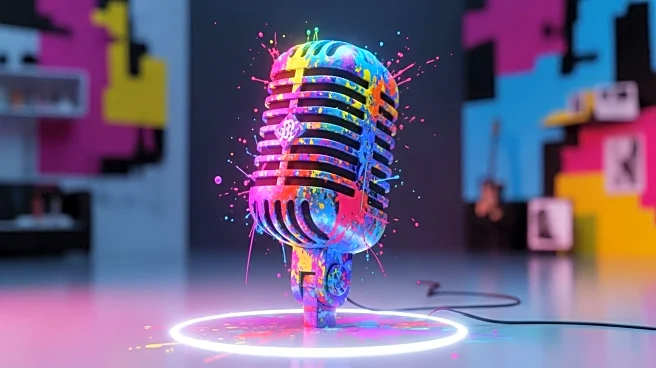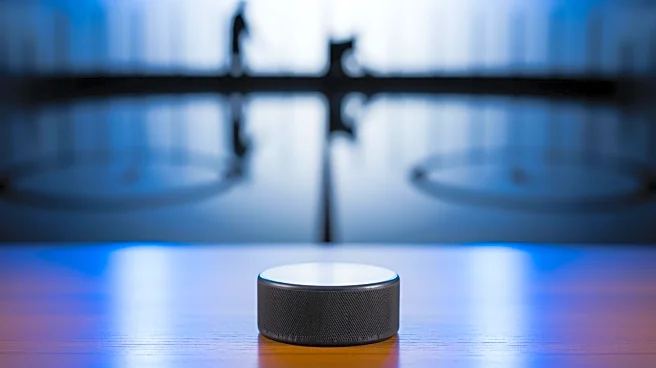What's Happening?
Rapper Tekashi 6ix9ine, legally known as Daniel Hernandez, has been ordered to home detention following a fight at a Florida mall that violated his probation terms. The altercation occurred on August 8, where Hernandez and another individual allegedly kicked and punched a third person. Hernandez pleaded guilty to misdemeanor battery and drug possession charges. Despite prosecutors' request for jail time, Judge Paul A. Engelmayer opted for home detention with electronic monitoring. Hernandez's lawyer argued that the rapper was provoked by threats and taunts related to his past as a government witness against the Nine Trey Gangsta Bloods gang.
Why It's Important?
The decision to place Tekashi 6ix9ine under home detention rather than jail reflects ongoing challenges in balancing legal consequences with personal safety for high-profile individuals. Hernandez's history of legal issues, including his role as a government witness, continues to impact his life, as he faces threats and provocations. This case highlights the complexities of celebrity legal battles and the influence of public perception on judicial decisions. It also underscores the broader societal issues of violence and intimidation faced by individuals who cooperate with law enforcement.
What's Next?
Hernandez is scheduled for sentencing on November 4, which will determine further legal consequences for his actions. The case may prompt discussions on the protection of witnesses and the responsibilities of celebrities in maintaining public order. As Hernandez continues to navigate legal challenges, his situation could influence public discourse on the treatment of high-profile individuals within the justice system.
Beyond the Headlines
The cultural implications of Hernandez's legal troubles are significant, as they reflect the intersection of celebrity, crime, and public perception. His case raises questions about the societal pressures faced by individuals who testify against criminal organizations and the role of media in shaping narratives around such events. Long-term, Hernandez's experiences may contribute to discussions on the ethics of celebrity influence and the responsibilities of public figures in legal matters.









